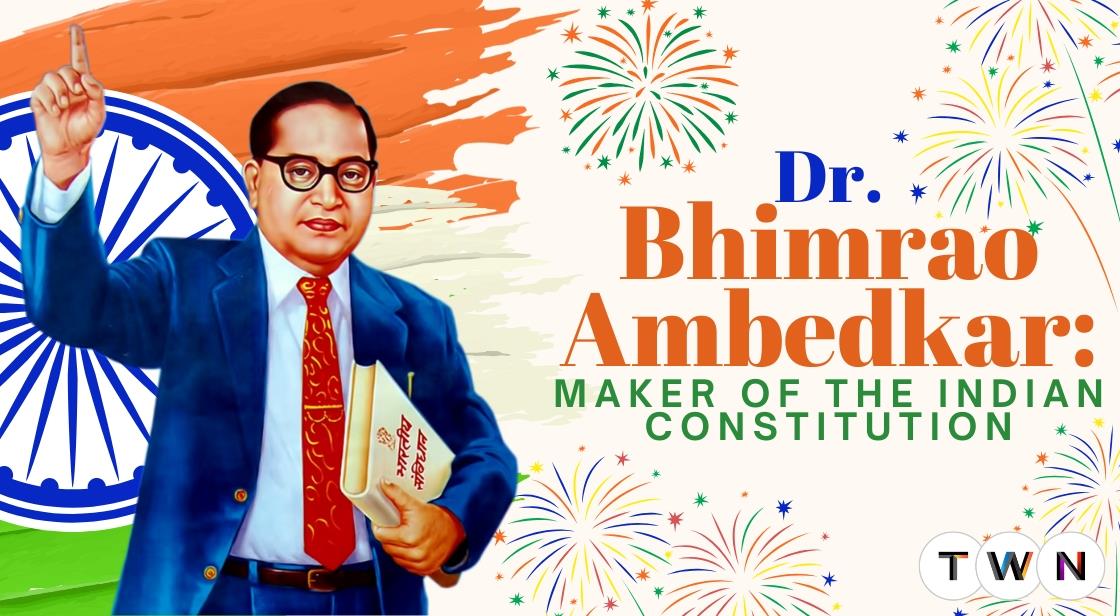Dr. Bhimrao Ambedkar: Maker of the Indian Constitution

Blog Post
Dr. Bhimrao Ambedkar, often referred to as the architect of the Indian Constitution, remains one of India's most prominent leaders and social reformers.
Born on April 14, 1891, Ambedkar's journey from enduring the harsh realities of caste discrimination to becoming a pioneering figure in law, politics, and social equality is nothing short of extraordinary.
His groundbreaking work in drafting India's Constitution has shaped the nation's democratic framework, ensuring that equality, justice, and human rights are enshrined in its legal structure.
Ambedkar's fight for the rights of the marginalized, especially Dalits, women, and other socially disadvantaged communities, continues to inspire movements for social justice.
His vision of an egalitarian society is evident in the affirmative action policies, like reservations in education and employment, that he championed to uplift the oppressed.
According to the latest data, India's affirmative action programs, introduced by Ambedkar, have played a pivotal role in improving the social and educational standing of historically marginalized groups, helping millions secure better opportunities and a voice in India’s growing democracy.
Beyond his legal and political contributions, Ambedkar’s conversion to Buddhism in 1956 was a powerful statement against the rigid caste system.
Today, his legacy continues to resonate globally, as his ideas about human rights and social justice are celebrated worldwide. December 6th, known as Mahaparinirvan Day, marks his death anniversary and remains a day to honor his contributions to India's progress as a democratic and inclusive nation.
Great individuals are those who make significant contributions to society. Many such remarkable personalities have not only influenced India but the entire world through their work. They live each moment creatively and purposefully.
Great people become great because of their unwavering determination and dedication to their work. India's history is full of such personalities who have made notable contributions across various fields. Their efforts make us proud, and one such extraordinary personality is Dr. B.R. Ambedkar. Let’s know more about him and his works.
Dr. Bhimrao Ambedkar: The Architect of the Indian Constitution
Dr. Bhimrao Ambedka Birth and Education
Dr. Bhimrao Ambedkar, popularly known as Babasaheb, was born on April 14, 1891, in the Mhow military cantonment in Madhya Pradesh, British India. He belonged to the Mahar caste, which at that time faced severe social discrimination. As a result, he had to endure a lot of humiliation and discrimination throughout his early education. However, despite these challenges, he went on to become one of the most educated individuals in pre-independence India.
Dr. Ambedkar earned his bachelor's degree from Bombay University and went on to study at Columbia University, where he earned M.A., Ph.D., and LLD degrees. Additionally, he obtained an M.Sc. and D.Sc. He was the first Indian to earn a doctorate in economics.
Dr. Ambedkar excelled in various fields. He was a philosopher, writer, journalist, professor, economist, politician, educator, anthropologist, scholar, and jurist.
In 1990, he was posthumously awarded the Bharat Ratna, India's highest civilian honor, for his unparalleled contributions to society. Apart from political equality, he fought tirelessly for social equality. Dr. Ambedkar devoted his entire life to social reforms and played an essential role in shaping the country's political landscape.
Also Read:The Man Behind Indian Constitution- Dr. Bheem Rao Ambedkar
Dr. Bhimrao Ambedkar as a great thinker and a great warrior
Dr. Bhimrao Ambedkar was not only a great thinker but also a remarkable social reformer and warrior for justice. He worked tirelessly to break free from the shackles of caste, color, and racial discrimination. Despite being one of the most educated and intellectual figures in the country, he had to endure the stigma of being an untouchable due to the caste system in Hindu society.
Dr. Ambedkar became a beacon of hope for millions, showing the path to liberation from all forms of societal divisions, such as caste, race, and color. He made numerous efforts to change the casteist mindset of society, but he was unable to change the views of the upper castes. On October 13, 1935, during a conference in Nashik, he announced his decision to convert to Buddhism as a way to break free from the oppressive caste system.
Known as Babasaheb, Dr. Ambedkar dedicated his life to securing equality for the marginalized sections of society, striving for the establishment of a society based on equality. He fought for the legal empowerment of individuals, believing that only a just legal system could provide the necessary platform for social equality.
Dr. Ambedkar’s life was devoted to the upliftment of the Dalit community. He famously said, “We must carve our own path. Political power alone cannot solve the problems of the oppressed. Their salvation lies in securing their rightful place in society.”
This quote reflects his belief that true equality could only be achieved by elevating the social and cultural status of oppressed groups, which was his life's mission.
Dr. Bhimrao Ambedkar, maker of the Constitution
Dr. Bhimrao Ambedkar, known as the Father of the Indian Constitution, was a tireless advocate for social equality, nationalism, secularism, and social justice. His vision was rooted in the idea that human dignity and social equality, not religion, should form the foundation of a nation. He believed that for a nation to progress, its foundation must rest on justice and equality, not religious divisions.
Ambedkar’s perspective was highly progressive and far-reaching. He argued that every individual should strive to achieve their goals through their best efforts. When India gained independence in 1947, the country faced a critical challenge: how would it move forward? Though the nation had become a democracy, the specifics of that democracy were yet to be determined. India had gained freedom, but the Constitution, which would define the nation’s democratic framework, had yet to be created. And this task was no small feat.
The responsibility of drafting the Constitution was entrusted to none other than Dr. Bhimrao Ambedkar, a man who was not just a prominent leader, but also a social reformer, a law expert, and an economist. His contributions to the field of law and his deep understanding of social and economic issues made him the ideal person to lead this monumental task. In 1947, Ambedkar was appointed the Chairman of the Drafting Committee for the Indian Constitution.
Through his relentless hard work and dedication, the Constitution of India was completed. On November 29, 1949, it was formally approved by the Constituent Assembly. Dr. Ambedkar’s leadership in drafting the Constitution not only provided India with a strong foundation for democracy but also ensured that the values of equality, justice, and human rights were enshrined in the country's legal framework.
Framing of the Indian Constitution
When India gained independence in 1947, the first Prime Minister of independent India, Jawaharlal Nehru, appointed Dr. Bhimrao Ambedkar as the first law and justice minister of the country. Just two weeks later, he was appointed the Chairman of the Constitutional Drafting Committee.
The Indian Constitution guarantees 7 fundamental rights to its citizens (in the first draft), which are:
-
Right to Equality
-
Right to Freedom
-
Right against Exploitation
-
Right to Freedom of Religion
-
Cultural and Educational Rights
-
Right to Property
-
Right to Constitutional Remedies
Dr. Ambedkar fought for the economic and social rights of women and worked to secure reservations in jobs and educational institutions for Scheduled Castes, Scheduled Tribes, and other backward classes. He sought to create a system that would provide equal opportunities for all.
The Constitution of India was adopted and approved by the Constituent Assembly on November 26, 1949.
Conclusion
Dr. Bhimrao Ambedkar was not only the architect of India’s Constitution but also a great thinker, social reformer, and true servant of humanity. His life journey is a unique example of struggle and inspiration. Babasaheb dedicated his entire life to the upliftment of the Dalits and marginalized communities, striving to ensure they received equal rights in society. His efforts led India on the path toward becoming a democratic and egalitarian society.
Dr. Ambedkar believed that social equality and justice are the true strengths of a nation. His thoughts and actions teach us that with determination, knowledge, and hard work, any obstacle can be overcome. Even today, his ideas and principles continue to inspire new generations. Dr. Ambedkar’s life and contributions will always motivate us to follow the path of social equality, justice, and national unity.
You May Like
EDITOR’S CHOICE












